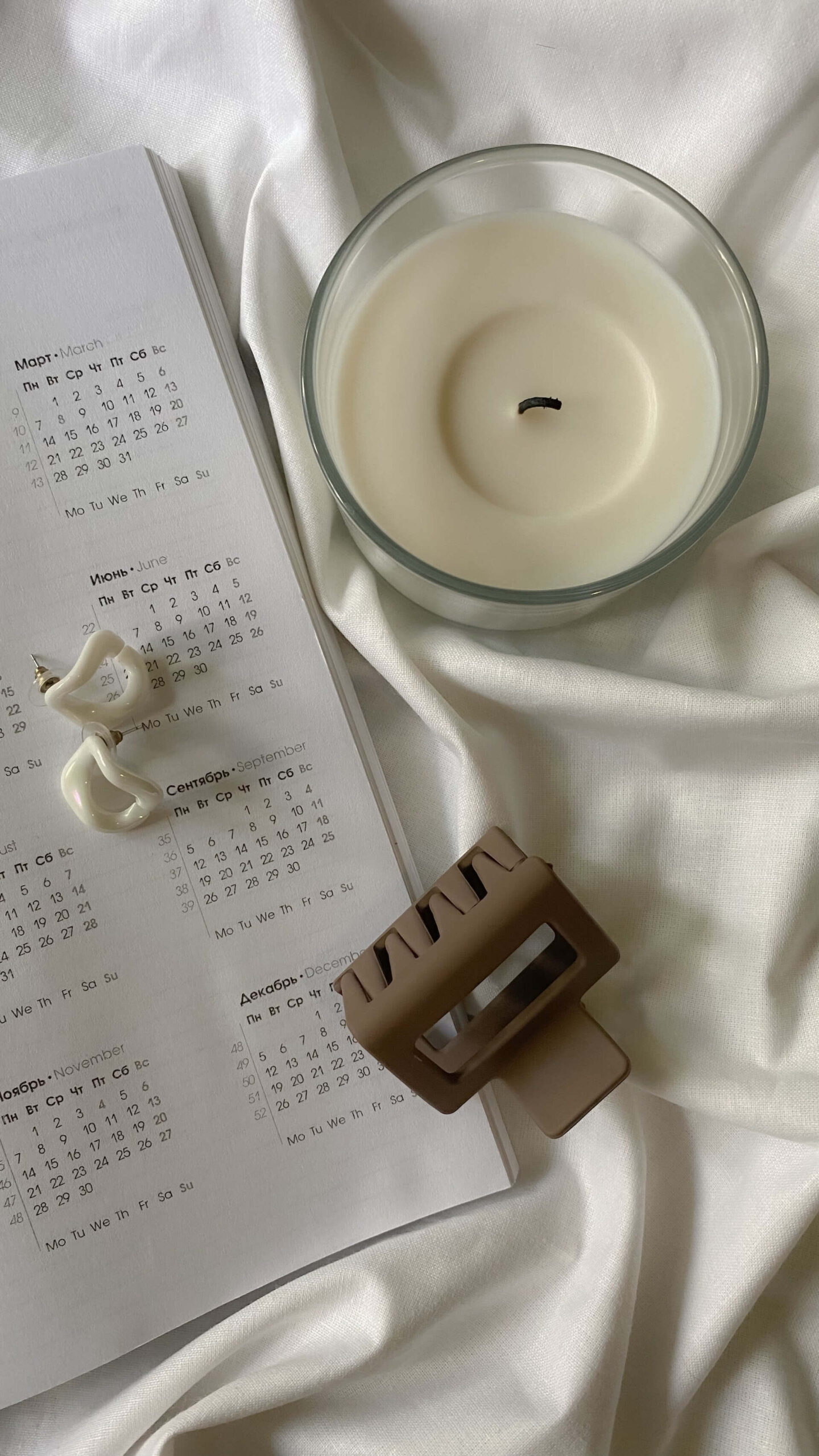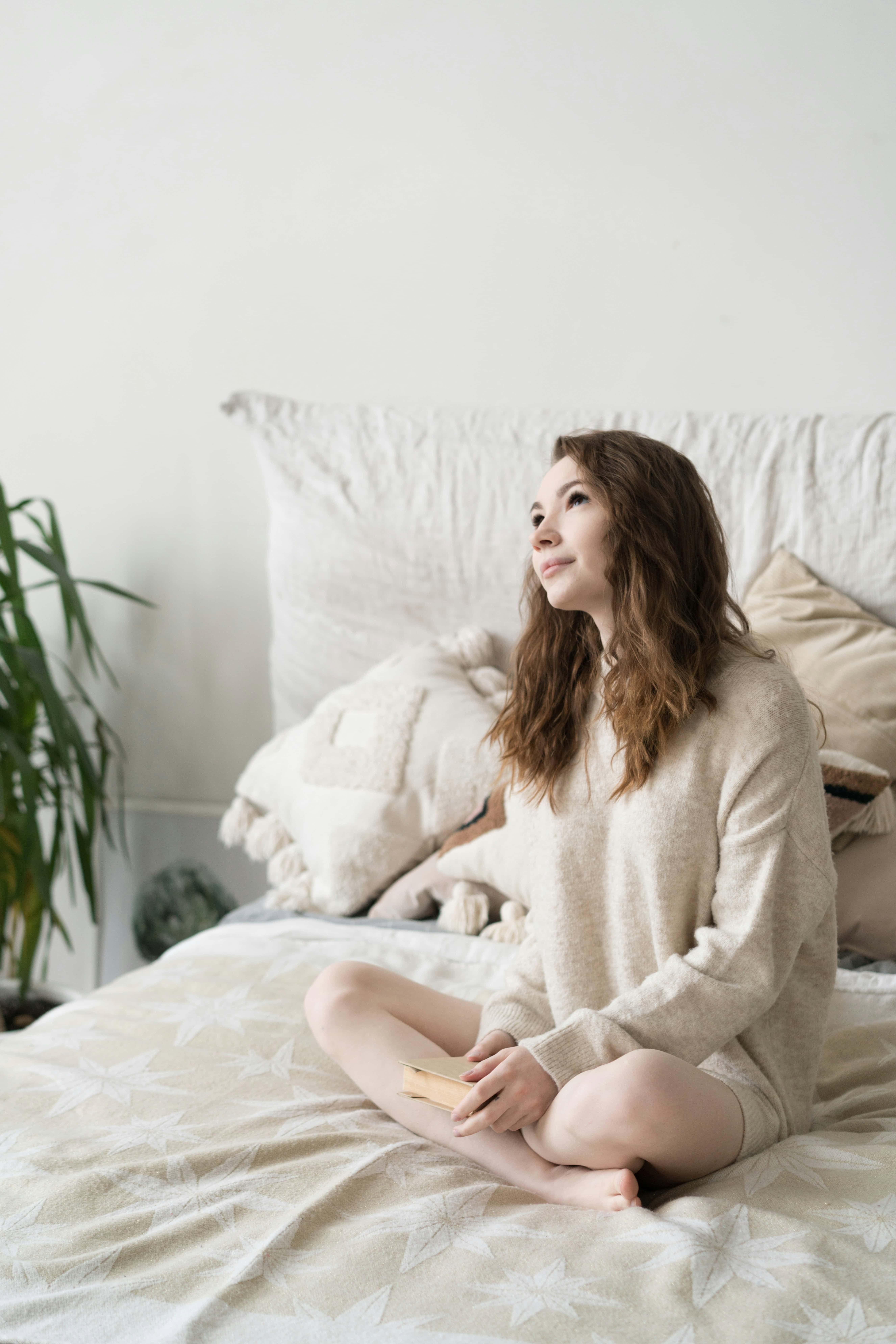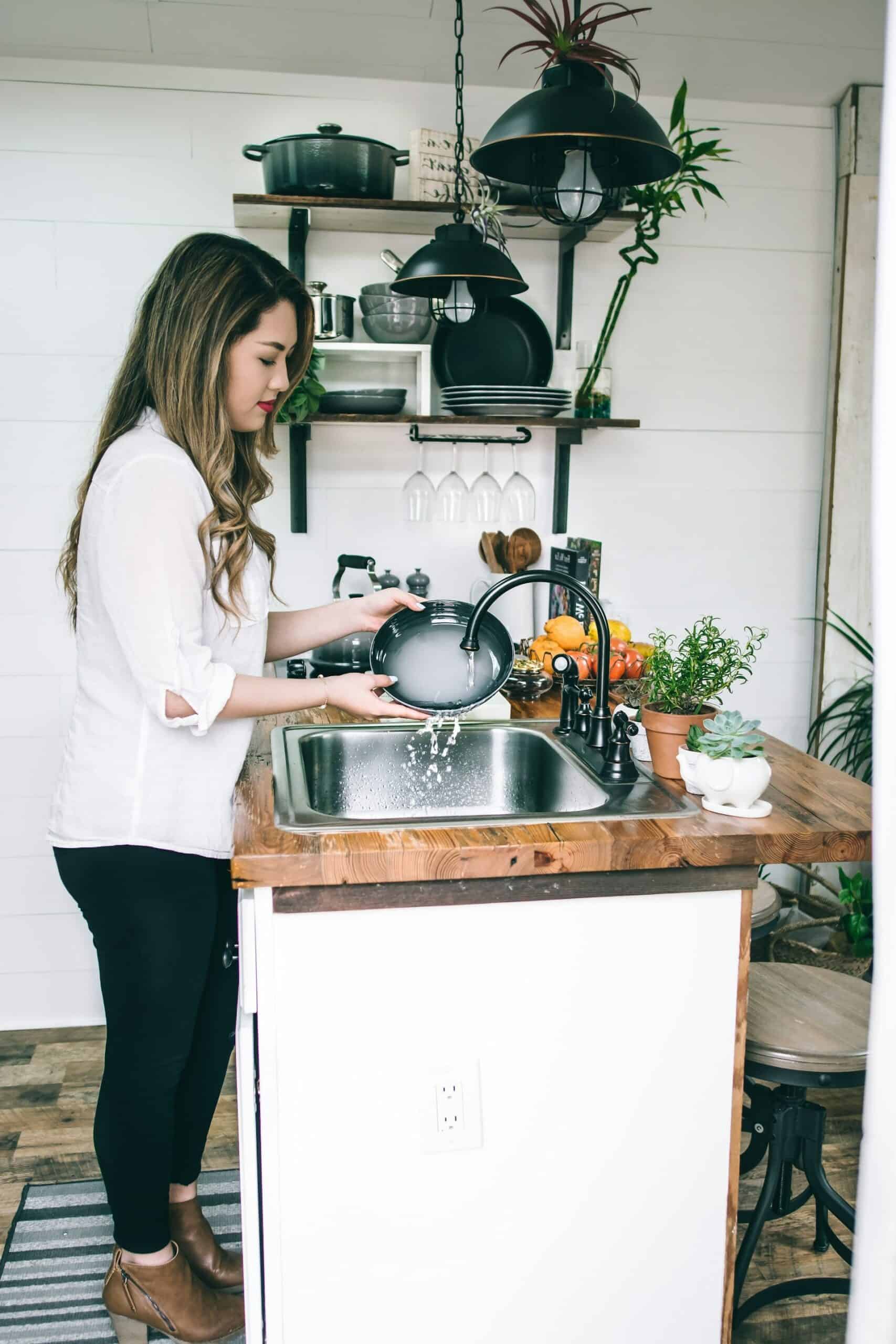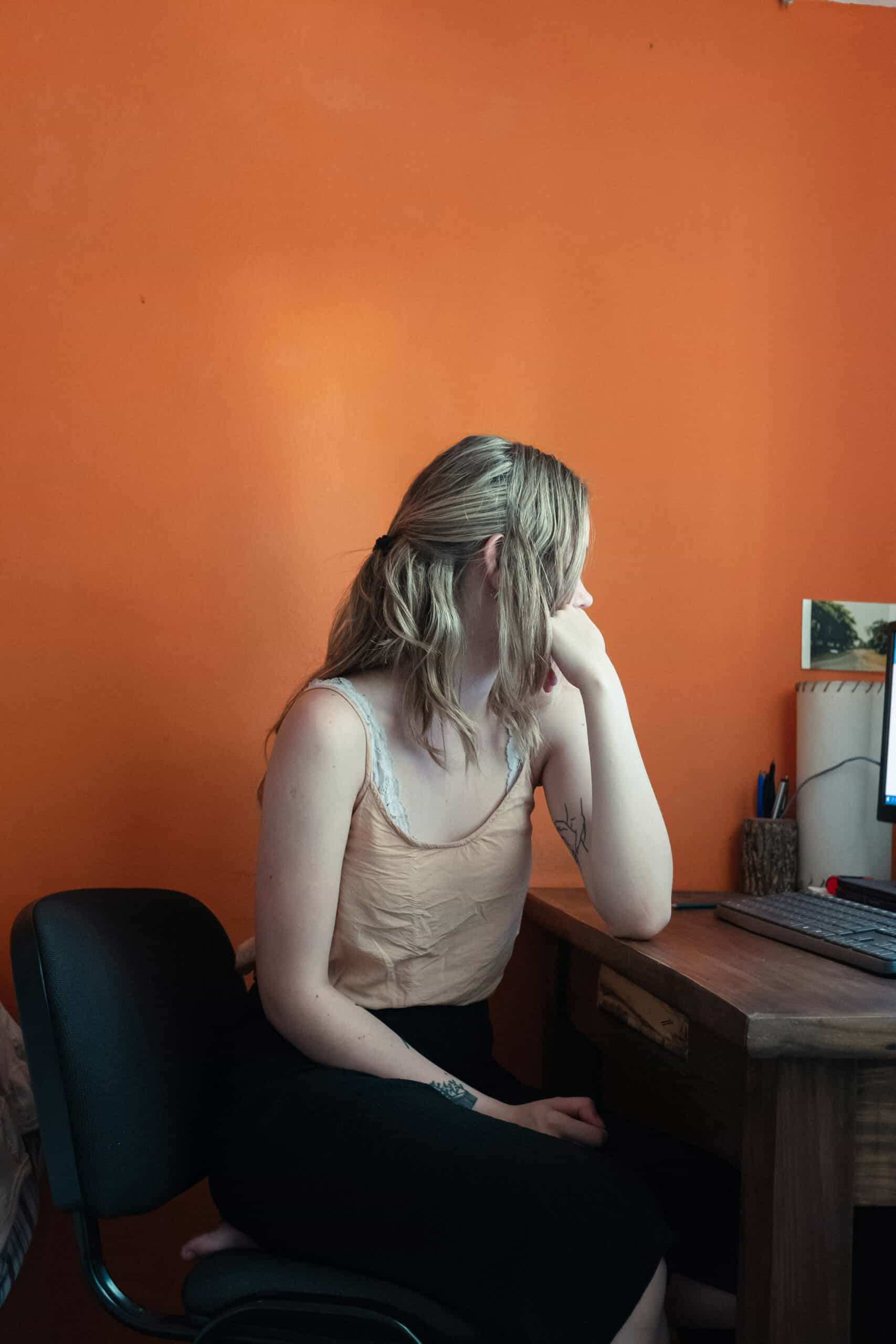For many people, the evening is a time to relax, recover from the day, and wind down for bed. However, for some of us, nighttime is a part of the day that provokes feelings of anxiety and stress.
If you regularly feel stressed instead of relaxed and content at night, you may be experiencing night anxiety.
As someone who regularly experiences evening anxiety, I understand how frustrating It can be to feel anxious as you’re trying to get rest. Luckily, I’ve figured out strategies for reducing anxious feelings and stress at night.
Check out these eight actionable ways to reduce nighttime anxiety if you’re ready to feel more relaxed and less stressed in the evening.
8 Actionable Ways to Reduce Night Anxiety

Start Winding Down From Your Day As Soon As Possible
After working all day, it’s often natural for us to check emails, brainstorm work-related ideas, or even continue working after getting home. As a result, managing a healthy work-life balance can be challenging, and the imbalance can contribute to anxiety.
Rather than unintentionally continuing your workday, try to have a clear separation between your work and home lives to reduce potential nighttime anxiety.
If possible, try to leave work at work or school at school and start winding down for the night as soon as possible.
Having a mental separation between you and the things that increase anxiety for you is a crucial step in reducing night anxiety.
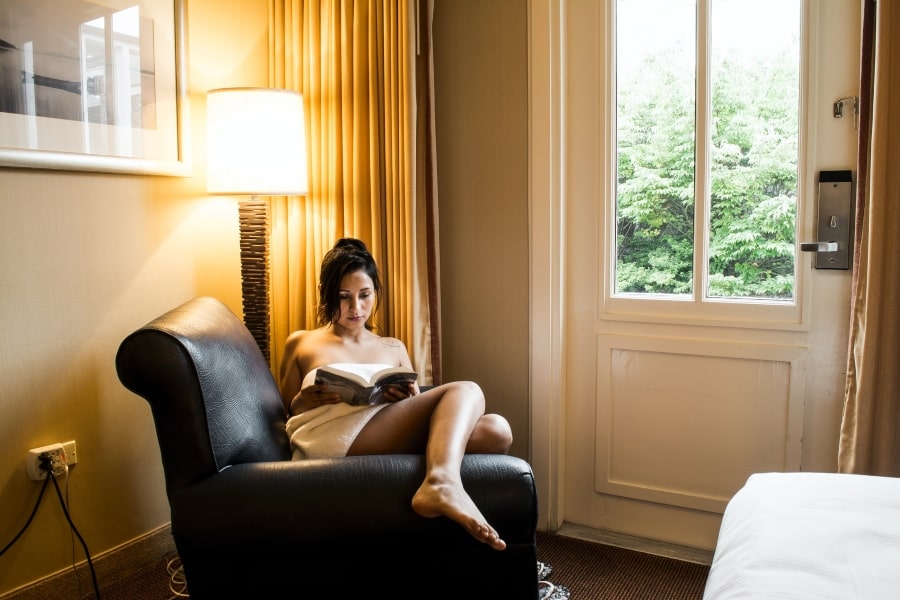
Implement An Evening Ritual To Relax
Do you have a practice that signals to your brain that it’s time to relax? If not, it’s time to implement an evening an evening ritual.
Your evening ritual doesn’t have to be fancy or complex; it just needs to aid in relaxing you and reducing your anxiety before bed.
The ritual you select could include the following:
- Light a few candles and meditate for a few minutes.
- Take a relaxing shower or bath.
- Wrap up in a blanket and eat a piece of dark chocolate
- Reading a few chapters of a juicy or engrossing novel
Whatever you choose as your ritual, remember that the goal is to do something that helps you ease into a calm and content mood before going to bed.
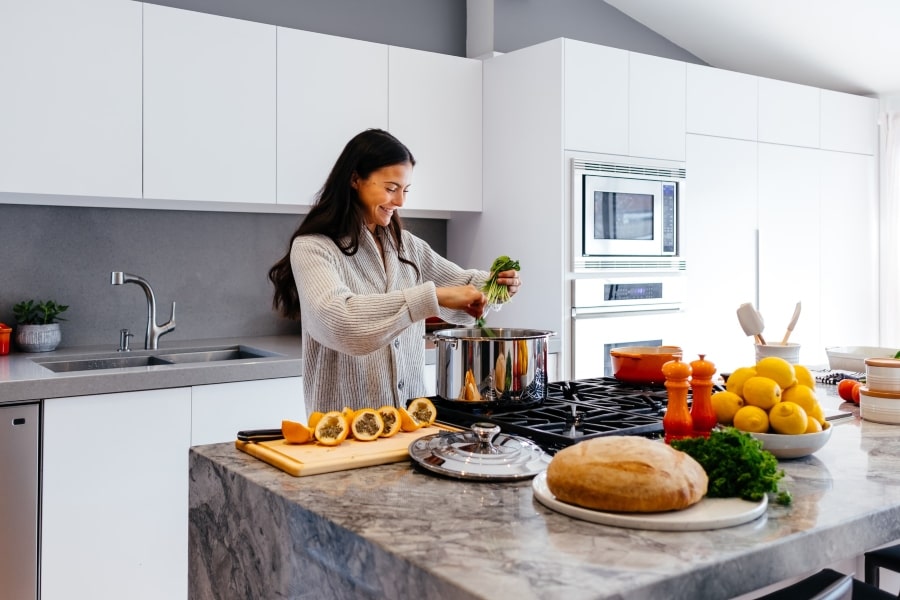
Take Time To Be Mindful During Your Evening Meal
Many of us cram working, social media scrolling, and other tasks into our evening without realizing it. Doing unconscious but attention-grabbing tasks (like checking email or reading news) is especially common during dinner.
If you’ve ever held a phone, remote, or tablet during an evening meal, you’re likely guilty of this.
Rather than multitasking while preparing and eating your evening meal, consider taking time to be mindful during dinner. Taking time to be mindful and enjoy the present goes a long way to reducing night anxiety.
Your evening meal is an excellent time to slow down and be aware of what you’re eating, recall the best parts of the day, organize your thoughts, and fully experience the present. Having a few moments of mindfulness can do wonders for helping to ease potential nighttime anxiety.
RELATED: 10 Super Simple Ways to Reduce Morning Anxiety
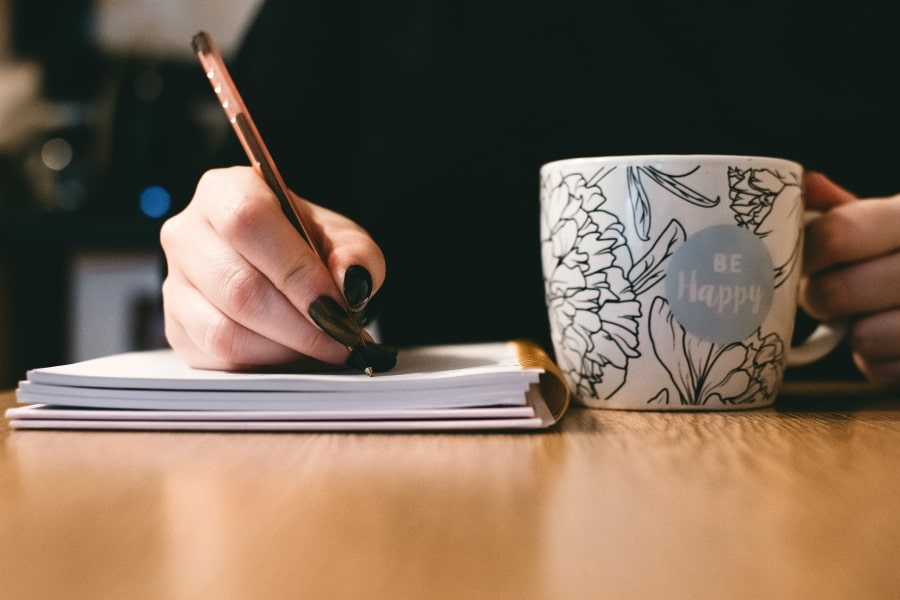
Write Down Your Plans For The Next Day
Do you ever feel stressed at the prospect of your plans for the next day? Sometimes, just thinking about everything you need to get done the next day at work, errands you need to run, or appointments that you need to keep can be stressful. This type of stress can be a significant cause of night anxiety.
Help to minimize feelings of impending overwhelm by writing down your plans for the next day.
Using your planner or scheduling app, take a few minutes to input the essential items that need to take place the next day.
Clearing these items out of your brain will help eliminate the potentially repetitive thought loop that can contribute to night anxiety and help you wind down with less mental clutter.
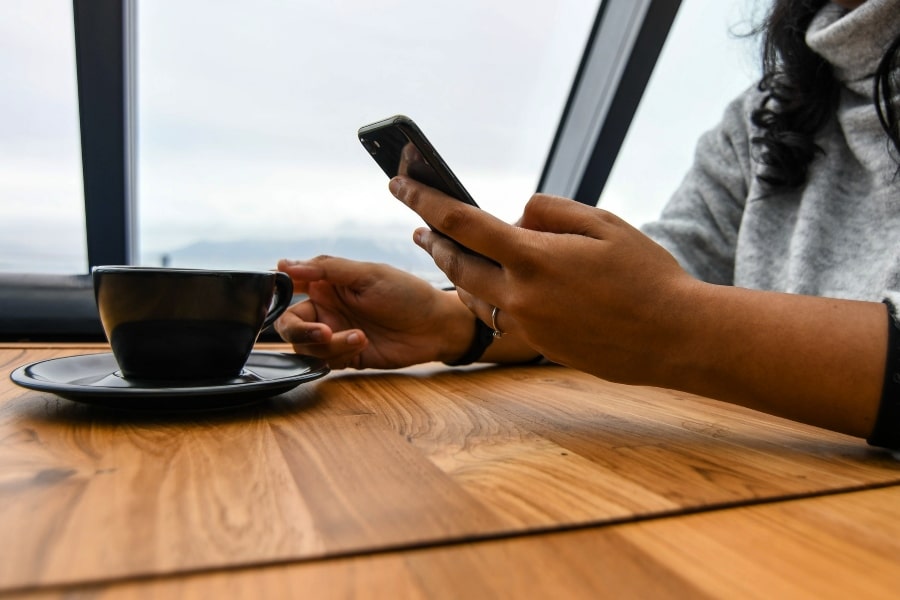
Use a Bedtime Alarm To Remember To Ready Yourself For Bed
To remind yourself to start readying for bed, consider setting a bedtime alarm on your smartphone or watch. Once your bedtime alarm goes off, it’s a reminder to turn off your devices and do everything you need to do to get ready for bed.
Ideally, your bedtime alarm should be set for at least 30 minutes to an hour before you plan to sleep. Allowing yourself wind-down time before bed helps you have a break from screens and helps your body settle in for the night.
Your bedtime routine is the time to do your before-bed hygiene, like showering, teeth brushing, and skin care practice. You can also alleviate potential stress for the next day by putting everything that you’ll need for the next day, like your keys, purse, work bag, and even tomorrow’s outfit, in their proper place.
If you plan to eat breakfast and lunch that you prepare yourself, you can also make these meals ahead of time to eliminate worries about what you’ll eat the next day.
The intention is to take care of any loose ends that may contribute to nighttime anxiety before going to sleep.
RELATED: 4 Simple Strategies To Nix Morning Anxiety And Own Your Day
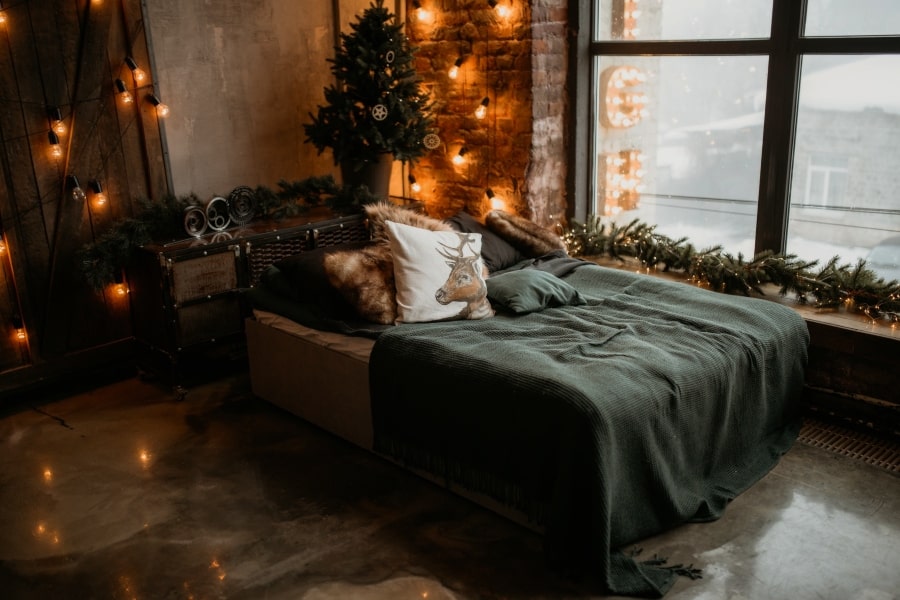
Make Your Bedroom Relaxation and Sleep-Friendly
If you regularly spend time using electronics in your bedroom or working in bed, it may be contributing to evening anxiety.
Help reduce or eliminate nighttime anxiety by keeping potentially stressful or aggravating things out of the bedroom. Your laptop, phone, and other electronic devices should stay outside the bedroom.
Additionally, your bedroom should be a no-working zone to ensure that the room is an inviting and sleep-friendly environment.
As a bonus, consider adding inviting items, like cozy blankets and sheets, soft pillows, warm lighting, and lavender-scented oils to reduce night anxiety and help induce sleep.
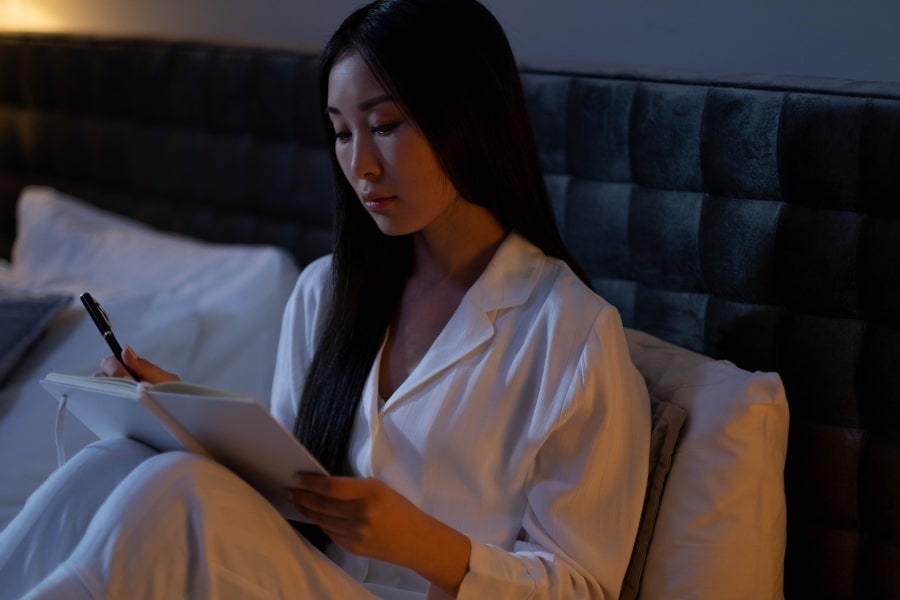
Keep a Notepad By Your Bed For Jotting Down Worries and Thoughts
Have you ever gotten into bed ready to slumber, only to have racing thoughts and struggle to go to sleep? Alternatively, have you ever woken up feeling anxious due to your ideas?
If so, you may benefit from keeping a notepad by your bed and writing down errant worries and thoughts. Having a simple notepad and pen near your bed allows you to jot down repetitive, problematic, or even essential ideas before bed. With this simple tip, you have the freedom to write as much or as little as you need to clear your head.
Remember that paper and a pen are best for this tip. Using the notepad on your phone can tempt you to look at other things *ahem* social media and potentially make your night anxiety worse.
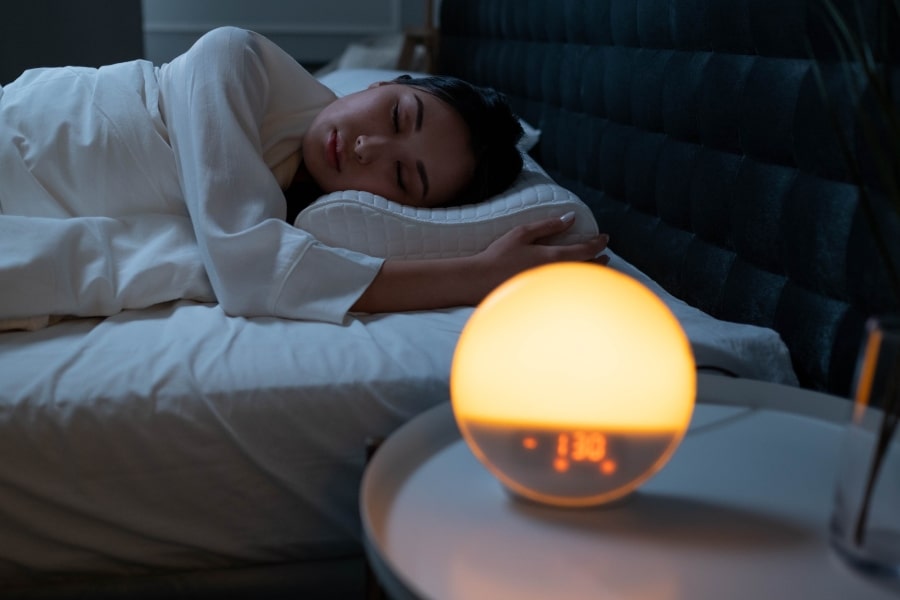
Go To Sleep At The Same Time Every Night
If you’re like many people, you head off to bed whenever you finish watching TV or when you finally force yourself to sleep. As a result, you may have an unpredictable bedtime, contributing to evening anxiety.
Instead of having an erratic bedtime, try to go to sleep at the same time every night. Having the same or similar bedtime every night helps create predictability in your evening routine and reduces the possibility of night anxiety.
Additionally, reliably going to sleep at the same time helps you wake up easier the next day and helps to reduce the chances of morning anxiety.
The Takeaway
Night anxiety can be a common occurrence for many people. Whether you regularly experience anxiousness, stress, or overwhelm during the evening, some strategies can help to reduce these feelings.
Using intentional and strategic practices like the tips provided here, you can start to have mindful and relaxed evenings instead of anxious ones. Feel free to use these tips to diminish feelings of evening anxiety and stress as needed.
Writer’s Note: Night anxiety can be a moderate to severe type of anxiety that may require medical assistance to alleviate. Treatment options can include therapy and medication. If you find that your symptoms of anxiety and stress aren’t letting up or are worsening, please don’t hesitate to seek professional help from a therapist, counselor, or doctor.
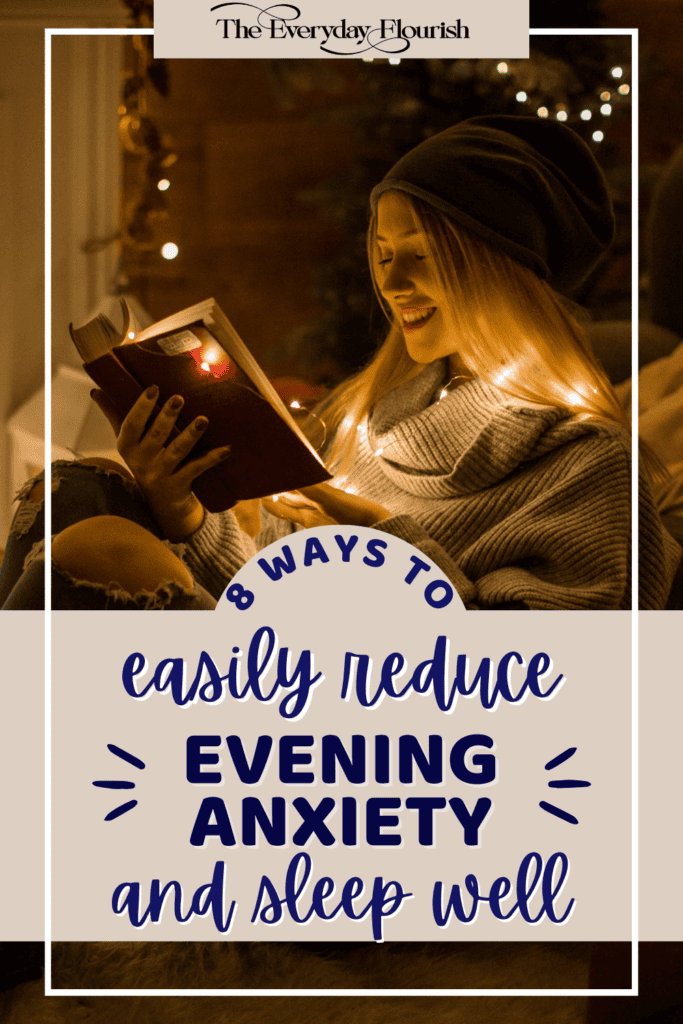
Want More Articles Like This?
Check Out These Similar Articles Below:
4 Simple Strategies To Nix Morning Anxiety And Own Your Day
50 Simple Things To Be Grateful For To Boost Your Mood
30 Blissful De-Stress Activities To Relax and Refresh Your Life
25 Lazy Ways to Become “That Girl”
5 Simple Ways to Care For Yourself Starting Today
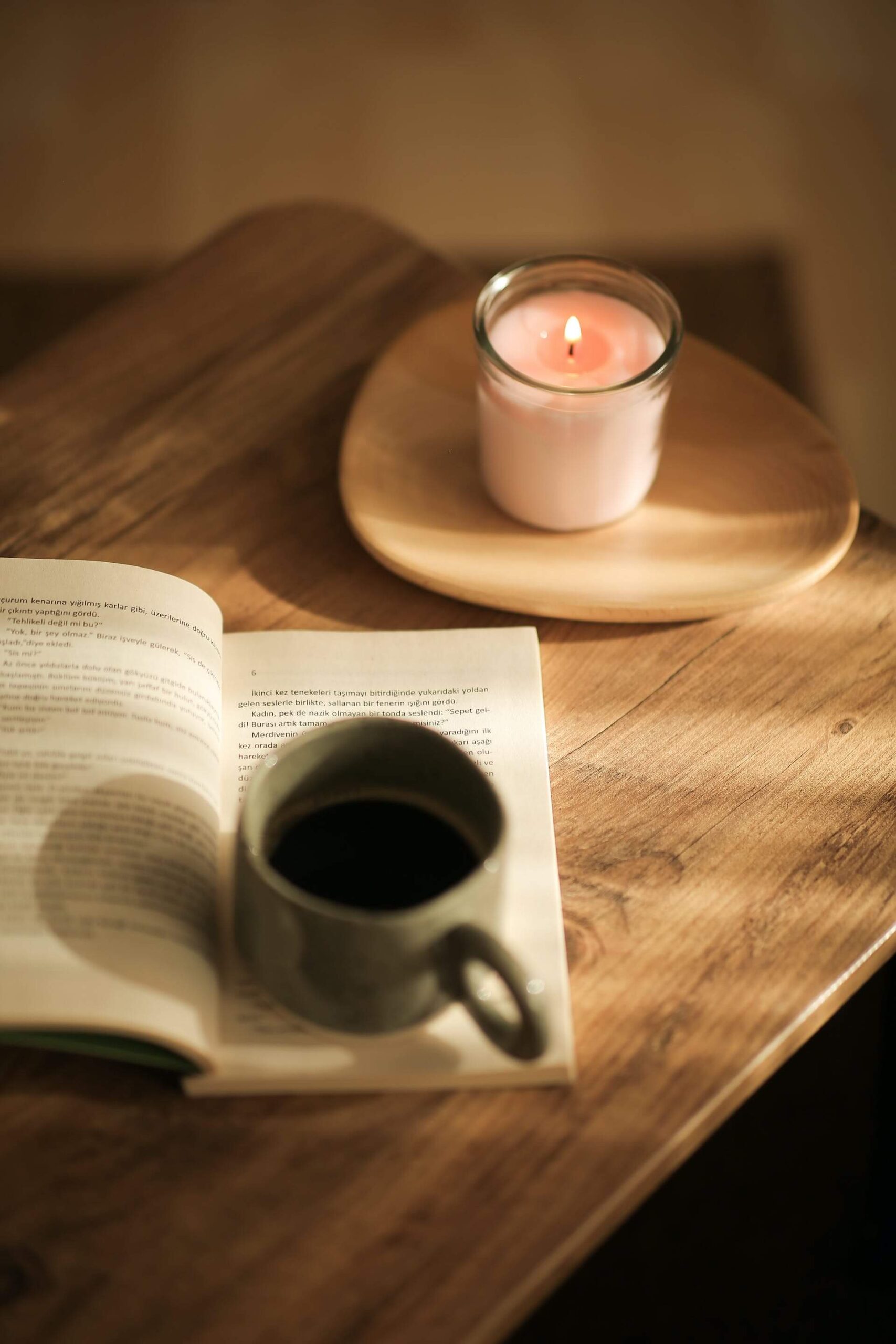
These tips will soothe your evening stress in no time.
Real-Life
Work in Progress.
Founder. Writer.
Roxy is the creator of The Everyday Flourish, a relatable personal growth blog for women who are tired of burnout, chaos, and hustle culture.
A recovering overthinker and unofficial life guinea pig, she shares honest self-care strategies, ADHD-friendly productivity tips, and mindset shifts that actually feel doable.
Around here, personal growth comes with grace, not pressure - and a lot fewer to-do lists.



